A blooming garden is a product of hard work. A significant amount of time is required to achieve the desired results. However, one of the downsides of having a successful garden is the attraction of pests. Pests love a green, blooming garden. Some pests help with the pollination of flowers while others are dangerous to plants.
Failing to control the harmful ones can ruin months or years of good work. In this article, we will discuss the common pests you can see in your garden. We’ll also show you pictures so you can identify them at first glance.
Beneficial Pests
Beneficial pests make gardening much easier. These pests help naturally with pollination and reduce the need for pesticides. You must know this kind of pest so you don’t kill them. The following sections outline some beneficial pests that you should be aware of.
Ladybugs
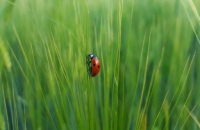
Ladybugs are easily recognizable by their distinctive red or orange shell with dark spots surrounding them. This insect helps with pest control. Both adult and larval forms of ladybugs consume smaller pests like aphids. Ladybugs serve a purpose in vegetable and rose flower gardens where aphids thrive. Be careful of broad-spectrum insecticides as they can kill them.
Ground Beetles
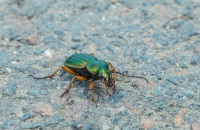
These insects appear to be dangerous to plants, but they are not. They are, however, predators of many other pests especially those that thrive in the soil, like snails and cutworms. Ground Beetles eat up harmful larvae and eggs and reduce the use of pesticides.
Praying Mantis
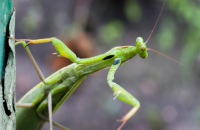
Praying Mantises are natural hunters and feed on a wide variety of pests. Sometimes they feed on beneficial pests. Their overall function is to reduce pests in a garden.
Earthworms
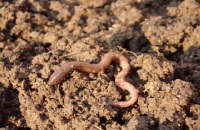
Earthworms are also very good garden pests. They live in the soil and their goal is to improve the soil’s quality. Earthworms also assist with the aeration of the soil. They speed up the decomposition of organic matter in the soil, making it more fertile. Every thriving garden needs earthworms.
Solitary Wasps
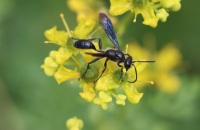
Solitary Wasps are important for the pollination of flowers. Aside from assisting with pollination, they also hunt other pests and do not attack humans.
Harmful Pests
These pests offer no advantage to your garden. They are built to feed on your plants and introduce diseases to them. If these pests are not properly controlled, they can build a colony in your garden and multiply, making all your hard work futile. We will discuss some harmful pests you can watch out for, as well as their pictures so you can identify them.
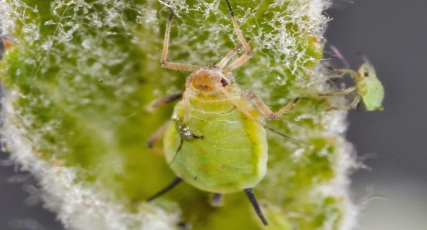
Aphids
Aphids are very common plant pests. These pests are tiny in size but can cause so much destruction. They suck the juicy sap of plants. Aphids also excrete a chemoattractant, honeydew, which attracts ants to the plants. However, natural pests like ladybugs reduce the incidence of aphids.
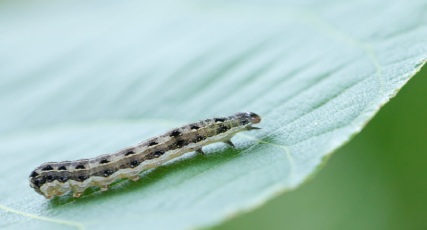
Cutworms
Cutworms are very destructive. They are the larval stage of moths. Because of their nocturnal habits, you hardly see them during the day. They emerge from the soil at night to invade young plants.
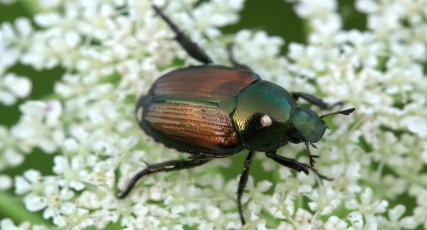
Japanese Beetles
Aside from the damage Japanese Beetles cause to plants, they also release pheromones to invite other beetles. They are difficult to control. Therefore, your goal should be to catch them early.
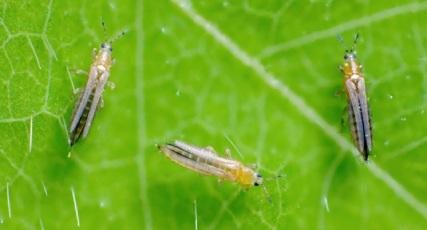
Thrips
Thrips are tiny insects and come in different sizes. They damage plants by sucking their sap. Their sizes make it difficult for them to be noticed. You can control them by spraying neem oil over your plants.
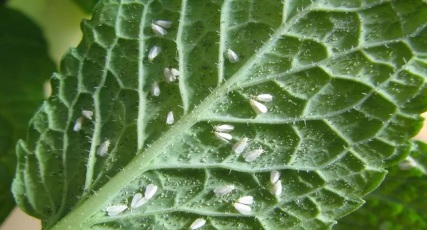
Whiteflies
Both the nymph and adult forms of whiteflies are destructive to plants. They secrete honeydew, which attracts ants to the plants. These insects develop resistance to insecticides very quickly, so using the same insecticides for a long time can be ineffective.
Conclusion
Before controlling pests in your garden, you must properly identify them so you can effectively deal with them. If you depend on just insecticides, you can end up killing pests that are beneficial to your garden. Consider more natural ways of controlling the pests to get the best results.